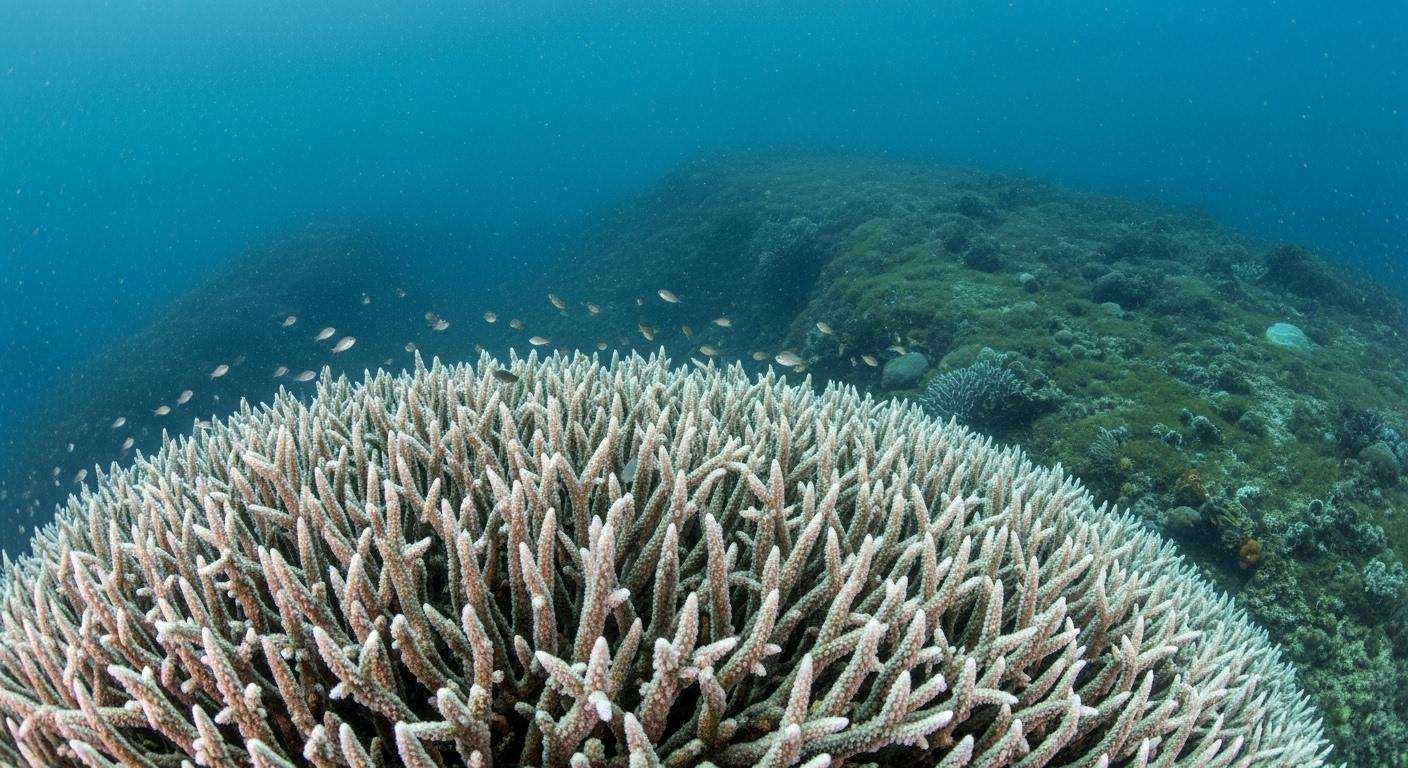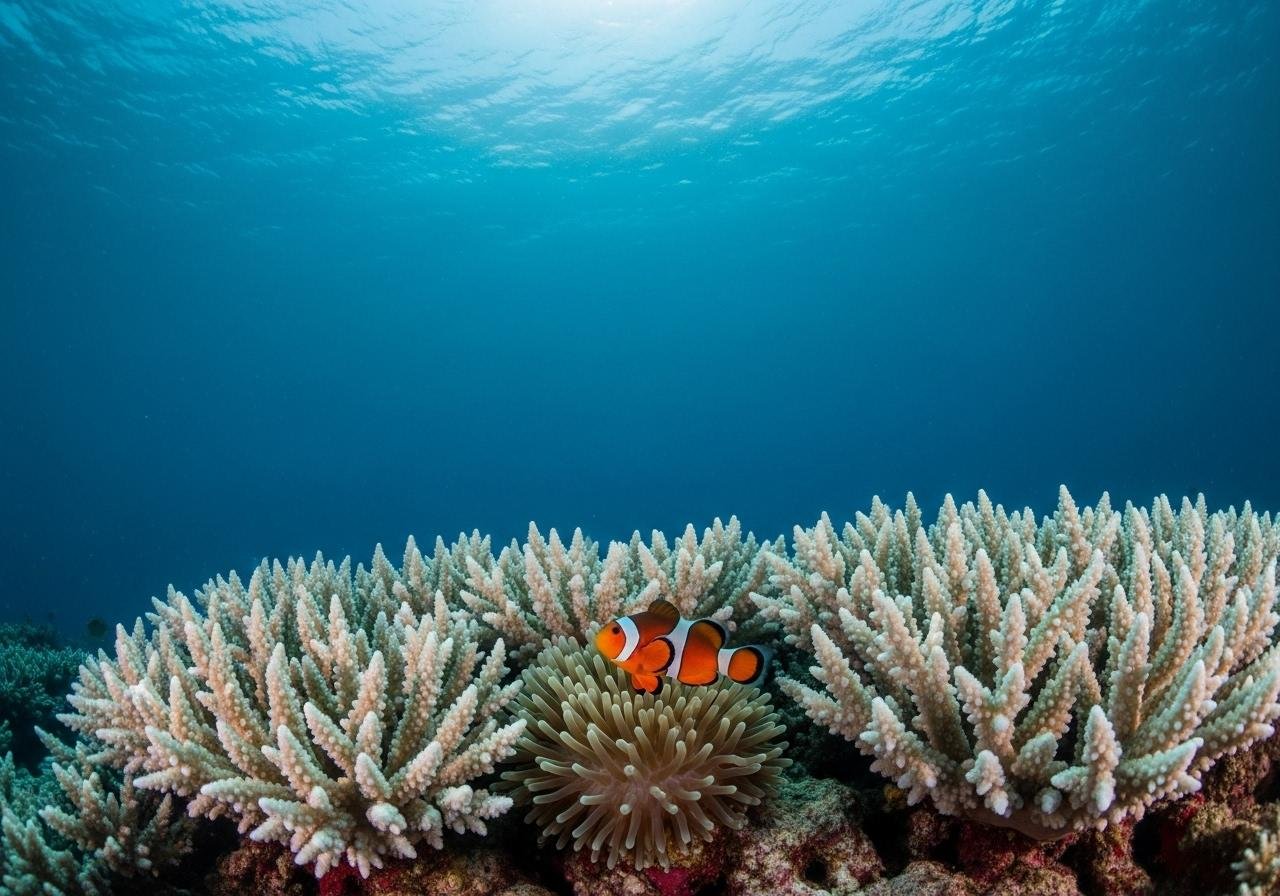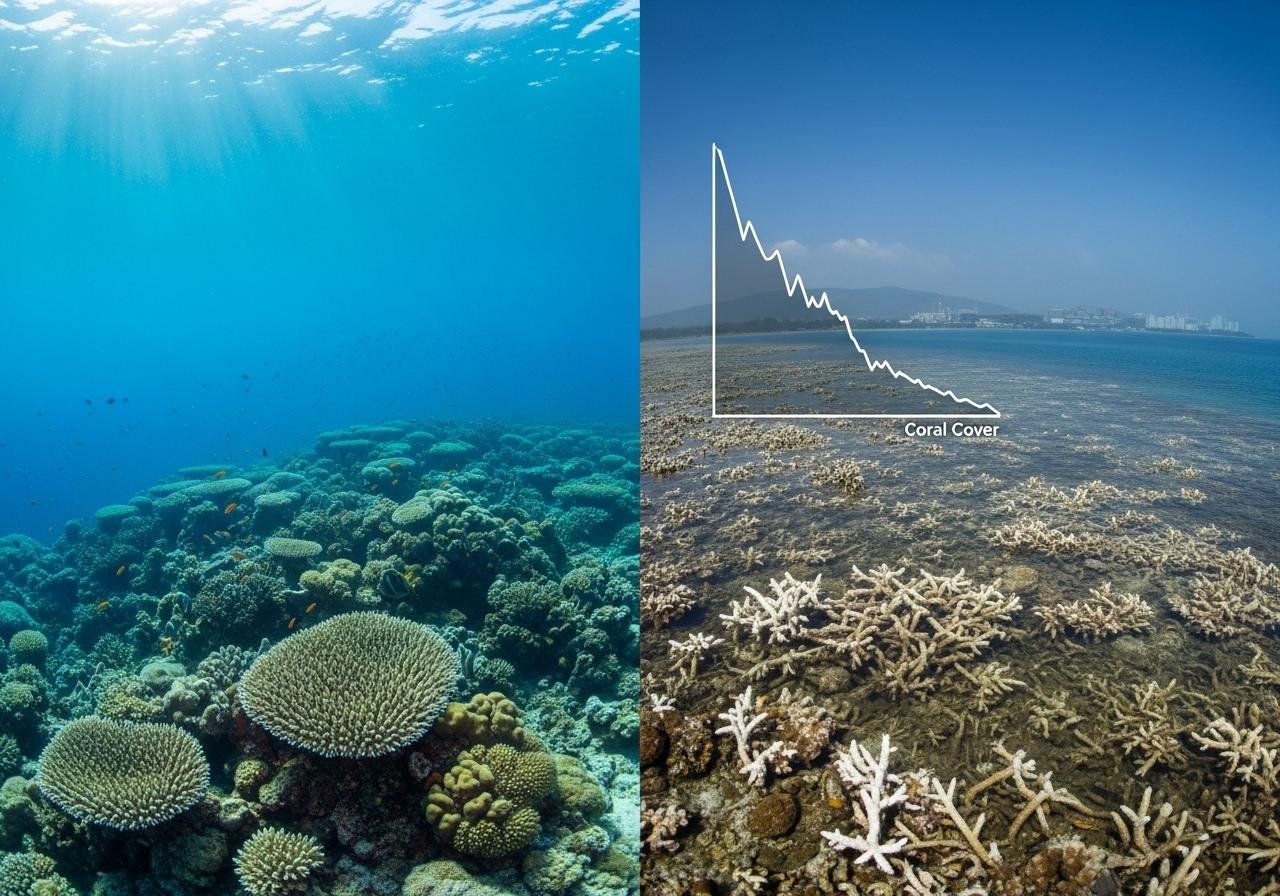
Understanding the Essential Role of Coral Reefs
If you have had the good fortune of seeing a vibrant coral reef system you should not take it for granted that they are still alive – or that they will be in short order as the oceans have absorbed as much as 90% of the energy of climate change – thus sparing us on land. But below the surface these systems are suffering and the consequences are catastrophic.
Coral reefs are essential for maintaining Earth’s climate balance, marine biodiversity, and human survival. Often called the rainforests of the sea, these ecosystems cover less than 0.2% of the ocean floor yet support nearly 25% of all marine life. Coral reefs protect coastlines from erosion and storms, sustain over 500 million people through fishing, food security, and tourism, and contribute more than $2.7 trillion annually to the global economy.
They also regulate carbon and nutrient cycles, helping stabilize the planet’s climate. Beyond ecology, coral reefs are a promising source of new medicines for cancer, infections, and inflammation. However, ocean warming, pollution, and acidification are driving mass coral bleaching worldwide. Protecting coral reefs is crucial for climate resilience, marine health, and sustainable human development.
But just like any bustling metropolis, these ecosystems have their threshold, known as a tipping point — a critical threshold at which these ecosystems could deteriorate rapidly due to environmental changes.
The Current State of Global Coral Reefs
Recent studies paint a rather concerning picture of the health of coral reefs worldwide. The 2025 report by the Global Coral Reef Monitoring Network indicates substantial declines.
The most devastating losses occurring in the Great Barrier Reef, the Coral Triangle, and parts of the Caribbean and Indian Ocean. Rising sea temperatures have triggered mass coral bleaching events, especially since 2016, destroying up to 50% of shallow corals in some regions.
The Great Barrier Reef, the world’s largest reef system, has suffered repeated bleaching linked to climate change. In the Caribbean, pollution, overfishing, and disease have wiped out more than 80% of live coral cover since the 1970s. Notable species such as clownfish and parrotfish, which rely heavily on these ecosystems, are witnessing habitat shrinkage at an unsettling pace.
Meanwhile, reefs in the Maldives, Seychelles, and Indonesia are struggling to recover from heat stress and coral mining. Scientists warn that without global action to curb greenhouse gas emissions and ocean warming, over 90% of reefs could vanish by 2050. Protecting these ecosystems is essential for biodiversity, food security, and coastal resilience worldwide.
Contributing Factors to Coral Reef Decline
Several culprits are driving the decline of coral reefs with climate change obviously playing a significant role — warming seas lead to more frequent coral bleaching events, a process where stressed corals expel the algae essential for their survival.
Ocean acidification weakens the corals further, hampering their ability to build their skeletons. Overfishing disrupts the ecological balance, while pollution and coastal development amplify stress on these delicate ecosystems.

Identifying the Tipping Point
So, what exactly do we mean by a tipping point in this context? Ecologically speaking, it’s the moment when a relatively small change causes a substantial and often irreversible shift in an ecosystem. Evidence, such as increased frequency of bleaching events and the collapse of coral cover in certain areas, suggests that we might be dangerously close or even at that tipping point. Studies indicate that if this threshold is crossed, the damage could be monumental and irreversible.
Human Influence on Coral Reefs
While nature plays its part, human activities exacerbate coral reef degradation. Tourism, though beneficial economically, often causes physical damage and pollution. Industrial and agricultural runoff introduces harmful substances into reef ecosystems. On the flip side, regulatory efforts and conservation programs aim to mitigate these impacts, advocating for practices that protect these vital marine habitats. The success of similar initiatives in sustainable tourism and its effects on waste management provides a blueprint for coral reef conservation efforts.
Conservation Strategies and Solutions
Despite the grim statistics, hope is far from lost. Innovative strategies are being implemented to restore and conserve coral reefs. Establishing Marine Protected Areas (MPAs) has proven critical in safeguarding reef environments. Engaging communities in sustainable fishing and promoting reef-friendly tourism are pivotal. Meanwhile, technology offers novel solutions, from drones monitoring reef health to robots assisting in coral planting.

Future Outlook and Predictions
The future of coral reefs depends significantly on global actions against climate change. Predictions caution that without substantial reductions in carbon emissions, reef health will continue to deteriorate, affecting marine biodiversity and coastal communities reliant on them. However, with concerted international efforts and the advancement of marine science, there’s potential to slow or even reverse some of the damage.
Ways Individuals Can Contribute
Everyday actions can make a notable difference. Reducing your carbon footprint by using energy-efficient products and advocating for renewable energy is a start. Volunteering for or supporting local reef conservation programs can have a direct impact. Education and advocacy for policy changes are powerful tools — the more informed and active we are, the greater our collective influence.
FAQs About Coral Reefs and Their Conservation
What causes coral bleaching?
Coral bleaching occurs when corals, stressed by factors like temperature changes or pollution, expel the algae living in their tissues, losing their color and essential source of energy.
Why are coral reefs important?
Coral reefs support a vast array of marine life, protect coastlines from erosion, and contribute significantly to local economies through tourism and fishing.
How does ocean acidification affect coral reefs?
Increased acidity in ocean waters hampers corals’ ability to produce calcium carbonate, weakening their structural integrity.
What steps are being taken to protect coral reefs?
Conservation efforts include establishing MPAs, reducing local stressors like pollution, and promoting sustainable tourism and fishing practices.
Key Points to Remember
- Coral reefs are crucial to marine biodiversity and coastal protection.
- Climate change and human activities are significant contributors to reef decline.
- Innovative conservation strategies and international cooperation are critical for reef preservation.
- Individuals can contribute by reducing their carbon footprint and supporting reef-friendly initiatives.
This article is for informational purposes only.
Reference: https://www.enn.com/articles/77272-world-reaches-a-climate-tipping-point-imperiling-coral-reefs
The post Coral Reef tipping point approaching or here already? appeared first on Green.org.














